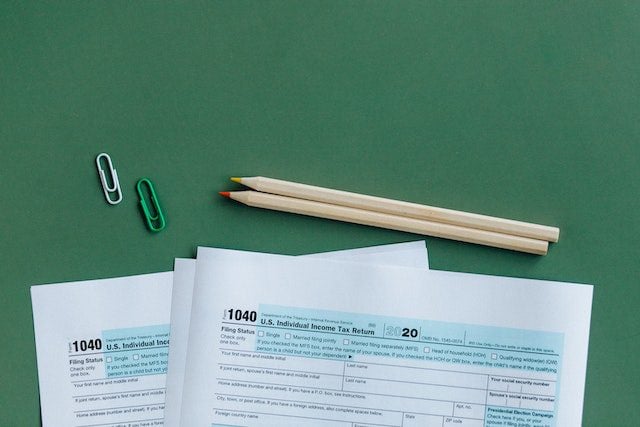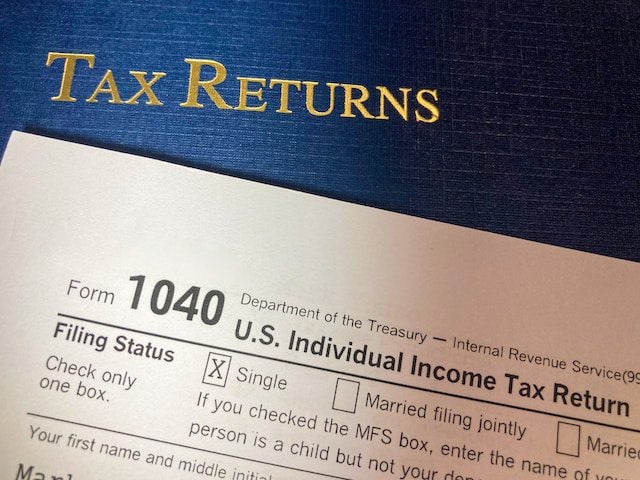I haven’t filed taxes in 10 years. What do I do?
If you find yourself thinking, “I haven’t filed taxes in 10 years. What do I do?” you’re not alone. Many people find themselves in this situation for various reasons, such as financial hardships, disorganization, or simply procrastination. But don’t worry—there are solutions available to help you tackle your unfiled tax returns and avoid costly penalties. In this comprehensive guide, we’ll discuss unfiled tax returns, penalties for not filing taxes for various periods, and what to do if you’ve never filed taxes before.
Unfiled Tax Returns
Why Should You File Your Taxes?
Filing your taxes is essential for several reasons. First and foremost, it’s the law. Additionally, filing your taxes allows you to claim tax credits and deductions, which may lower your overall tax bill. You may also be entitled to a tax refund, but you must file your return to receive it. Finally, keeping your tax filings current helps you avoid penalties and interest charges that can accumulate over time.
Steps to Take if You Haven’t Filed Taxes in Years
- Gather Your Documents: Collect all relevant financial documents for the years you didn’t file taxes, such as W-2s, 1099s, and records of deductions and credits.
- Determine the Years You Need to File: Review your records to determine which tax years you need to file. The IRS typically requires taxpayers to file their returns for the past six years.
- Prepare Your Tax Returns: Use tax software or hire a tax professional to help you prepare your tax returns. Be sure to include all necessary information and documentation.
- Submit Your Tax Returns: Mail your tax returns to the appropriate IRS address or electronically file them if possible.
IRS Penalties for Not Filing Taxes for 2, 3, 4, 5, 6, or 7 Years
When you don’t file taxes for an extended period, you may face various penalties from the IRS. If you haven’t filed taxes in five years, you could face:
- Failure-to-File Penalty: The penalty is usually 5% of your unpaid taxes for each month your return is late, up to a maximum of 25% of your unpaid taxes.
- Failure-to-Pay Penalty: If you owe taxes and haven’t paid them, the penalty is typically 0.5% of your unpaid taxes per month, up to a maximum of 25% of your unpaid taxes.
- Interest Charges: In addition to penalties, the IRS charges interest on unpaid taxes and penalties, which compounds daily.
The penalties for not filing taxes for two, three, four, five, six, or seven years are similar to the penalties for not filing for five years. The main difference is the amount of time the penalties have been accumulating. The longer you wait to file, the more penalties and interest you’ll owe.
Not Paying Income Tax for 10 Years
If you haven’t paid income tax for 10 years, you’ll likely face significant penalties, interest, and potential legal consequences. It’s crucial to address your unfiled tax returns and unpaid taxes as soon as possible to minimize these consequences. Consider working with a tax professional or tax attorney to help you navigate this complex situation and negotiate with the IRS on your behalf.
Never Filed Taxes Before
If you’ve never filed taxes before, you’ll need to start by determining which tax years you need to file. In most cases, the IRS requires taxpayers to file their returns for the past six years. Follow the steps outlined above in the “Unfiled Tax Returns” section to gather your documents, prepare your tax returns, and submit them to the IRS. If you’re unsure about any aspect of the process or feel overwhelmed, consider seeking assistance from a tax professional or tax attorney. They can help you understand your obligations, ensure your tax returns are accurate, and provide guidance on any potential penalties or interest charges you may face.
What If You Can’t Afford to Pay Your Taxes?
If you find yourself unable to pay your taxes, there are options available to help you address your tax debt. Some of these options include:
- Installment Agreement: The IRS offers installment agreements, which allow you to pay your tax debt in smaller, more manageable monthly payments over time.
- Offer in Compromise: In some cases, the IRS may accept a lower amount than you owe as a settlement for your tax debt through an Offer in Compromise.
- Penalty Abatement: If you have a reasonable cause for not filing or paying your taxes, such as a medical emergency, natural disaster, or death in the family, you may qualify for penalty abatement, which reduces or eliminates your penalties.
- Currently Not Collectible Status: If you can demonstrate that paying your tax debt would cause significant financial hardship, the IRS may place your account in Currently Not Collectible status, temporarily suspending collection efforts.
Seek Professional Help
Navigating unfiled tax returns and IRS penalties can be daunting, especially if you haven’t filed taxes in 10 years or more. To ensure the best possible outcome, it’s crucial to seek professional help from a tax expert or attorney. They can guide you through the process, help you understand your options, and advocate on your behalf with the IRS.
Free Attorney Consultation
If you’re thinking, “I haven’t filed taxes in 10 years. What do I do?” don’t panic. There are solutions available to help you tackle your unfiled tax returns and minimize penalties. Start by gathering your documents, determining which tax years you need to file, and preparing and submitting your tax returns. If you’re unsure of the process or need assistance, don’t hesitate to seek professional help.
At The Tax Defenders, we understand the stress and anxiety that comes with unfiled tax returns and unpaid taxes. Our team of experienced tax attorneys is here to help you navigate your situation and achieve the best possible outcome. Call us today at (312) 345-5440 for a free attorney consultation and take the first step towards resolving your tax issues.
See more
Can you get in trouble for not filing taxes for 10 years?
Yes, you can get in trouble for not filing taxes for 10 years. Failing to file taxes for an extended period can result in significant penalties, interest charges, and potential legal consequences. The IRS may initiate collection actions, place liens on your property, or even pursue criminal charges for tax evasion in severe cases. It’s essential to address your unfiled tax returns and unpaid taxes as soon as possible to minimize these consequences and avoid further legal trouble.
How can I get my taxes from 10 years ago?
To obtain copies of your tax documents from 10 years ago, you can request a tax transcript or a copy of your tax return from the IRS. Here are the steps to get your tax information:
1. Tax Transcript: A tax transcript provides a summary of your tax return information, including your adjusted gross income, filing status, and income. You can request a tax transcript online, by mail, or by phone:
– Online: Visit the IRS “Get Transcript” website and create an account or sign in. Select the “Tax Return Transcript” option for the year you need.
– By Mail: Complete and mail Form 4506-T (Request for Transcript of Tax Return) to the IRS. This form is available on the IRS website.
– By Phone: Call the IRS automated phone transcript service at 1-800-908-9946 and follow the prompts.
2. Copy of Tax Return: If you need a complete copy of your tax return, you can request it by submitting Form 4506 (Request for Copy of Tax Return) to the IRS, along with the appropriate fee. Note that the IRS typically only retains copies of tax returns for seven years, so it may not be possible to obtain a copy from 10 years ago.
Alternatively, if you used tax software or worked with a tax professional to prepare your taxes 10 years ago, you might be able to obtain a copy from them. Keep in mind that retention policies for tax records may vary, so it’s not guaranteed that they will still have your information.
How many years can you go without filing a tax return?
It is not advisable to go without filing a tax return, as it is a legal requirement for most taxpayers. However, the IRS generally has a statute of limitations of six years to assess additional tax or initiate collection actions if you have unfiled tax returns. This means that if you haven’t filed a tax return for several years, the IRS typically expects you to file at least the past six years of tax returns to become compliant.
It’s essential to understand that failing to file tax returns can result in significant penalties, interest charges, and potential legal consequences. If you are due a refund, you have a three-year window from the original filing deadline to claim it, after which the refund is forfeited. It’s always better to file your tax returns on time and stay current with your tax obligations. If you have unfiled tax returns, it’s important to address them as soon as possible to minimize any consequences.
What happens if you don’t file taxes or if they’re not paid?
If you don’t file your taxes or fail to pay the taxes you owe, you may face a range of consequences from the IRS. These consequences can include penalties, interest charges, collection actions, and potential legal issues. Here’s a breakdown of what could happen:
1. Penalties: The IRS imposes two separate penalties for not filing a tax return and not paying taxes:
– Failure-to-File Penalty: This penalty is usually 5% of your unpaid taxes for each month your return is late, up to a maximum of 25% of your unpaid taxes.
– Failure-to-Pay Penalty: If you owe taxes and haven’t paid them, the penalty is typically 0.5% of your unpaid taxes per month, up to a maximum of 25% of your unpaid taxes.
2. Interest Charges: In addition to penalties, the IRS charges interest on unpaid taxes and penalties. The interest rate is determined quarterly and compounds daily.
3. Collection Actions: If you continue to ignore your tax obligations, the IRS may initiate collection actions, such as wage garnishments, bank levies, and property seizures.
4. Tax Liens: The IRS may file a federal tax lien against your property, which can negatively impact your credit score and make it difficult to obtain loans or sell your property.
5. Legal Consequences: In extreme cases, if the IRS determines that your failure to file or pay taxes is willful and fraudulent, you may face criminal charges for tax evasion, which can lead to fines and imprisonment.
To avoid these consequences, it’s essential to file your tax returns on time and pay any taxes you owe. If you’re unable to pay your taxes in full, consider working with the IRS to establish an installment agreement, apply for an Offer in Compromise, or request Currently Not Collectible status.
What if I’m behind on my taxes?
If you’re behind on your taxes, it’s important to take action to resolve the situation and become compliant with your tax obligations. Here are the steps you should follow:
- Gather your documents
Collect all relevant financial documents for the years you didn’t file or pay taxes, such as W-2s, 1099s, and records of deductions and credits.
2. Determine the years you need to file
Review your records to determine which tax years you need to file. The IRS typically requires taxpayers to file their returns for the past six years.
3. Prepare your tax returns
Use tax software or hire a tax professional to help you prepare your tax returns. Be sure to include all necessary information and documentation.
4. Submit your tax returns
Mail your tax returns to the appropriate IRS address or electronically file them if possible.
5. Pay your taxes
If you owe taxes, pay as much as you can to minimize penalties and interest charges. If you cannot pay the full amount, consider applying for an installment agreement with the IRS, which allows you to make monthly payments over time.
6. Address penalties and interest
You may be able to request penalty abatement or an Offer in Compromise to reduce or eliminate penalties and interest charges if you have a reasonable cause for not filing or paying your taxes.
7. Seek professional help
If you’re unsure about any aspect of the process, consider seeking assistance from a tax professional or tax attorney. They can help you understand your obligations, ensure your tax returns are accurate, and provide guidance on any potential penalties or interest charges you may face.
Taking these steps will help you become compliant with your tax obligations and minimize the consequences of being behind on your taxes. Remember, it’s always better to address your tax issues sooner rather than later to avoid further complications and penalties.
Call us today at (312) 345-5440 for a free attorney consultation and take the first step towards resolving your tax issues.







